New linen products - stylish and sustainable
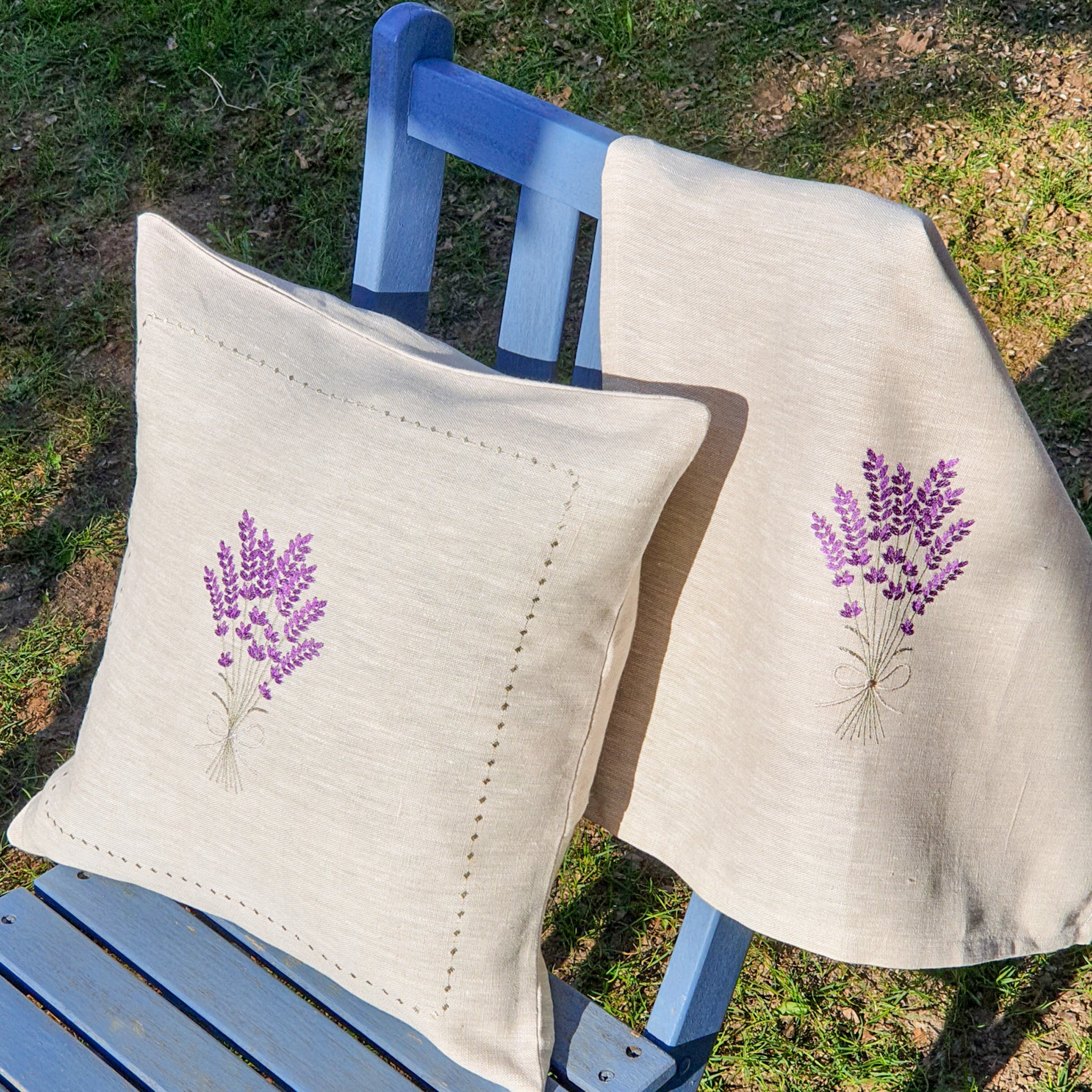
My biggest goal – to support small traders from my home country
We had actually planned to go to our house in Provence over Easter—our little paradise and oasis of relaxation!

But like so many things, the pandemic made that completely impossible at the moment.
Fortunately, I was able to select a lot of things in February and prepare them with our tailor couple, so that we could add more new products to our SHOP .

The Au fil du Lin shop in Lourmarin
A lot of things happen over the phone or email. In my search for new manufacturers, I trawled through Google Business Ads, aggressively searching for manufacturers that fit our vision and values!
But I have to admit, I miss my homeland, the personal contacts, the people, the climate, the sounds, the scents... I miss it!
At Apropos Provence, the environment and sustainability are very important to us. Linen weaving is authentic and durable, with a refined character. The linen manufacturing process and the properties of the material itself are 100% in line with our values. Furthermore, linen is very popular and widely used in home decor, especially in the South of France.
For all these reasons, it seemed obvious to us to highlight linen for our spring/summer product selection. There are many companies that have their products manufactured cheaply on the other side of the world, with all the energy-intensive maritime logistics. It's much rarer to find talented artisans who create and produce their products in Provence. This meets our standards for environmentally friendly and sustainable manufacturing. After a long search, we discovered a gem: a creative tailoring couple who produce high-quality linen products right in the South of France.
A talented craftsman
Au Fil du Lin, a small family business, is located in the heart of Provence, in the charming village of Lourmarin and the small town of Pertuis. Embroidery and linen are the company's specialty, passionate about authentic products and fair trade production. They've chosen linen as their material of choice because it's ecological, durable, lightweight, breathable, and absorbent. This material also perfectly complements their embroidery. The linen fibers they work with come exclusively from France.


Mr. and Mrs. Lenglet, the founders of Au Fil du Lin, in their workshop
A wide selection of products
Our supplier offers a wide range of linen household linen products, such as cushions, tablecloths, placemats, and tea towels. The feel of the natural material is characterized by fine and delicate embroidery with Provençal patterns such as lavender, olive trees, poppies, and cicadas.
We've selected patterns for our boutique that are reminiscent of the South and are currently very popular in decorating: lavender, olive trees, and ornaments that embody French elegance. From pillows to placemats, including tea towels, together or separately, these products will definitely bring a Southern touch to your interior.

Linen tea towel with lavender embroidery
Ancient fabrics – linen made from flax fiber
Linen has been used in textile production for thousands of years, long before cotton and synthetics. Flax is one of our oldest cultivated plants and one of the most beautiful textile fibers. The first traces of flax's use date back to prehistoric times. Even in ancient times, linen clothing was widely used.
But why was linen so rarely used? It wasn't until the 19th century that it was increasingly replaced by cotton, which was cheaper and easier to produce. But today, interest in this noble and ecological material is growing again. Linen is very trendy again!

Linen cushion cover and tea towel with olive embroidery
Natural fiber linen
Linen fabric is made from the flax plant. Flax is a plant that requires a temperate and humid climate to thrive. It produces annual blue, purple, or white flowers. Europe is an ideal region for flax cultivation. Did you know that France is the largest linen producer in the world?
Environmentally friendly production
Flax is a natural material that requires minimal fertilizers and pesticides, as well as little water to grow, making it an ecological material. The plant grows naturally thanks to the heat of the sun and rainwater and therefore, unlike cotton, requires no irrigation. Furthermore, the flax production processes (scutching, spinning, weaving, and manufacturing) consume little energy.
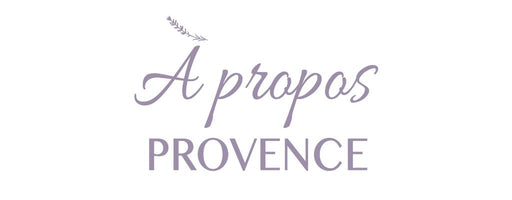
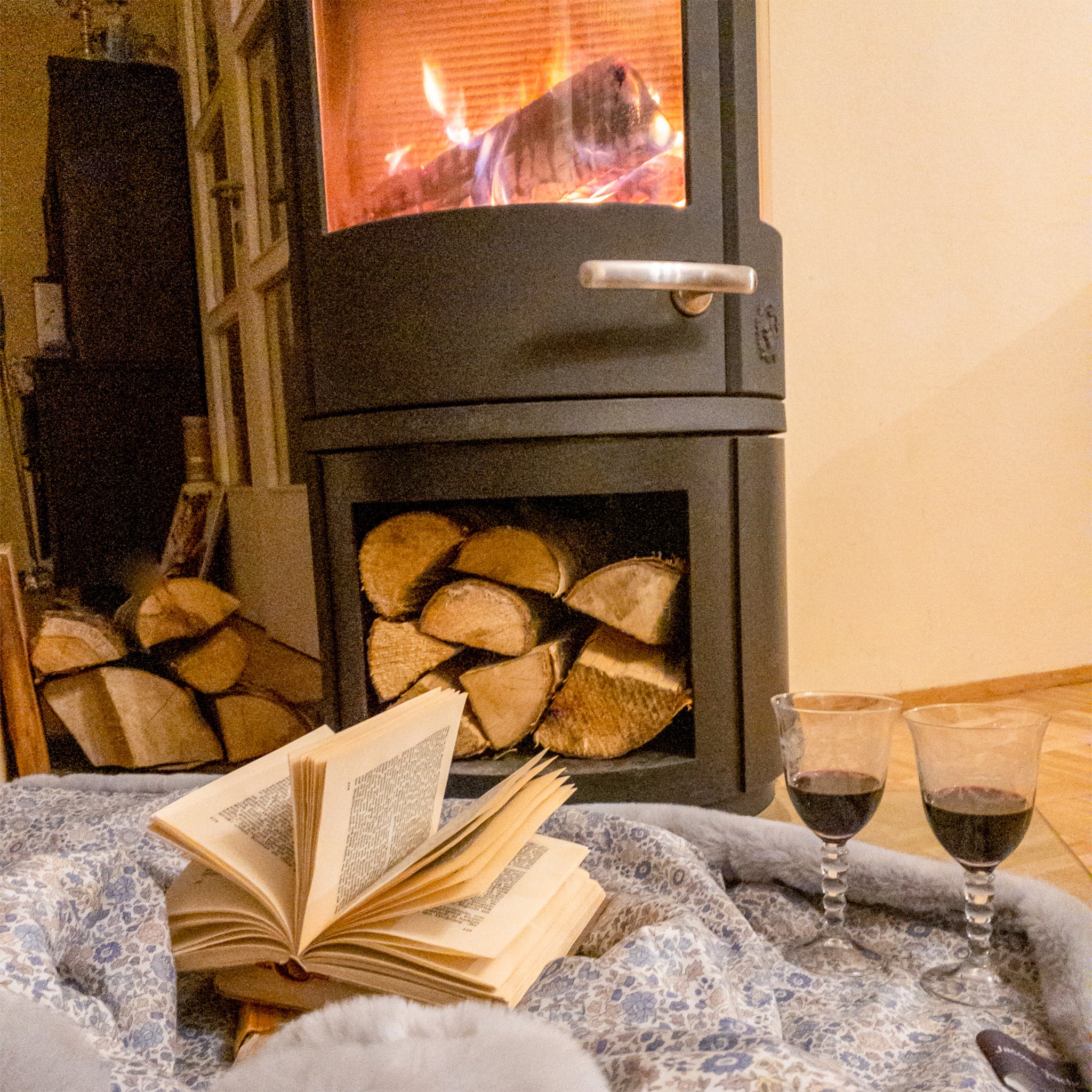
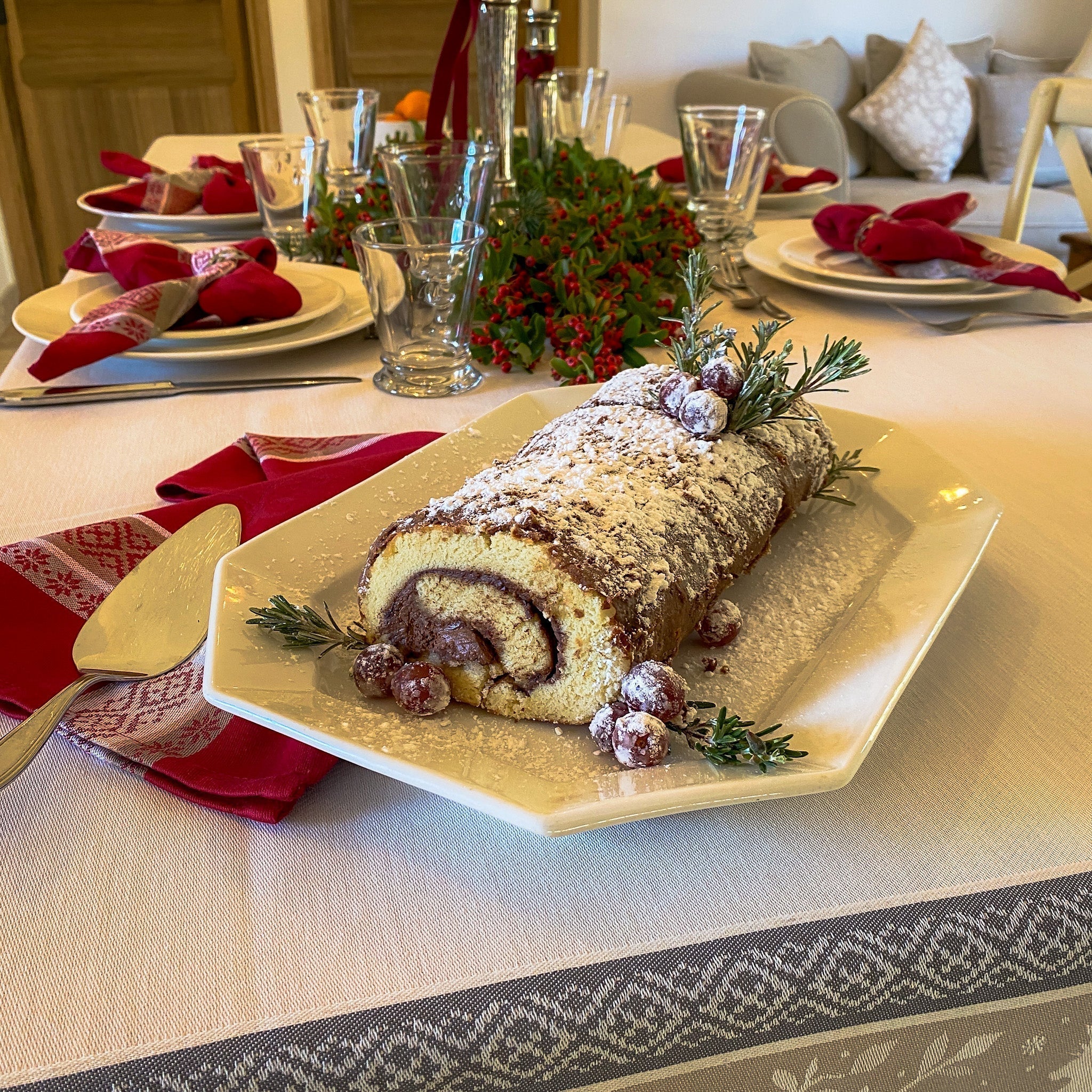
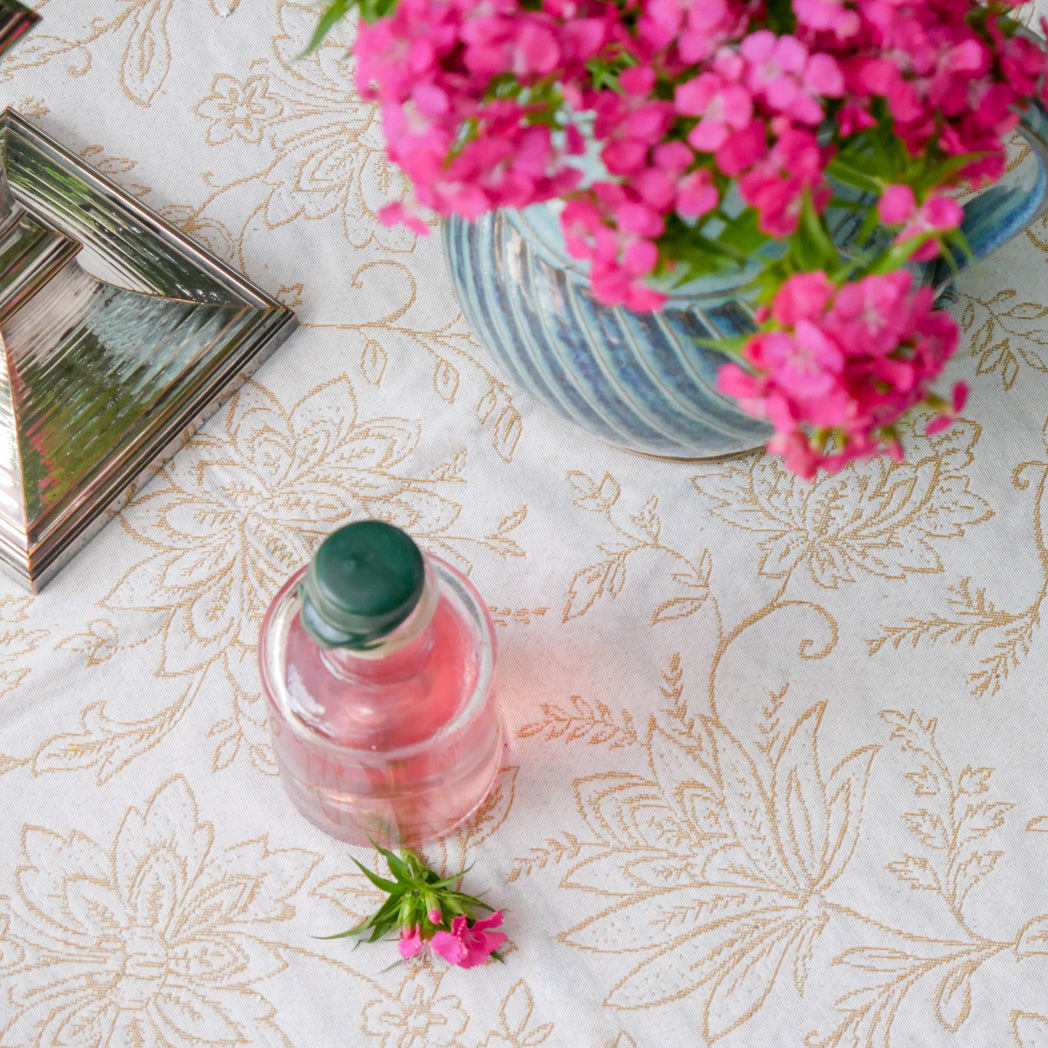
Comments